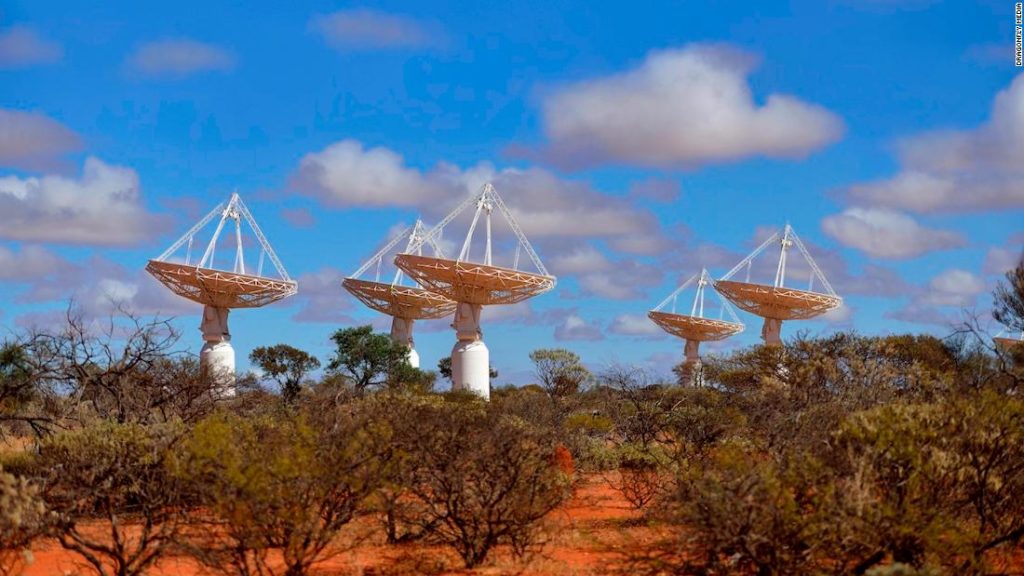The Australian Square Kilometer Array Pathfinder (ASKAP), a radio telescope located in outback Western Australia, mapped the galaxies in just 300 hours, or 12.5 days. This is a significant increase from previous surveys, which have taken years.
The result is a new atlas of the universe, according to Australian science agency CSIRO, which developed and operates the telescope.
“ASKAP is applying the very latest in science and technology to age-old questions about the mysteries of the universe and equipping astronomers around the world with new breakthroughs to solve their challenges,” said CSIRO CEO Larry Marshall in a statement on Tuesday.
It marks the first time ASKAP has been tested in its entirety. The new map covers 83% of the entire sky and shows our galaxies in unprecedented detail.
Scientists also expect to find tens of millions of new galaxies in future ASKAP surveys, lead author and CSIRO astronomer David McConnell said.
Astronomers around the world will be able to use the new data to “explore the unknown and study everything from star formation to how galaxies and their super-massive black holes evolve and interact,” McConnell added.
The initial results were published Tuesday in the Publications of the Astronomical Society of Australia .
ASKAP is made up of 36 dish antennas, which work together to take panoramic photographs of the sky. The high quality of the telescope’s receivers means the team only needed to combine 903 images to form a full map of the sky — compared to previous surveys, which needed tens of thousands of images.
The new data will enable astronomers to undertake statistical analyses of large population galaxies, aiding their understanding of how the universe evolved and is structured.
“ASKAP is a major technological development that puts our scientists, engineers and industry in the driver’s seat to lead deep space discovery for the next generation,” said Australia’s Minister for Industry, Science and Technology, Karen Andrews. “This new survey proves that we are ready to make a giant leap forward in the field of radio astronomy.”
You may also like
-
UK coronavirus variant has been reported in 86 countries, WHO says
-
NASA technology can help save whale sharks says Australian marine biologist and ECOCEAN founder, Brad Norman
-
California Twentynine Palms: Explosives are missing from the nation’s largest Marine Corps base and an investigation is underway
-
Trump unhappy with his impeachment attorney’s performance, sources say
-
Lunar New Year 2021: Ushering in the Year of the Ox

